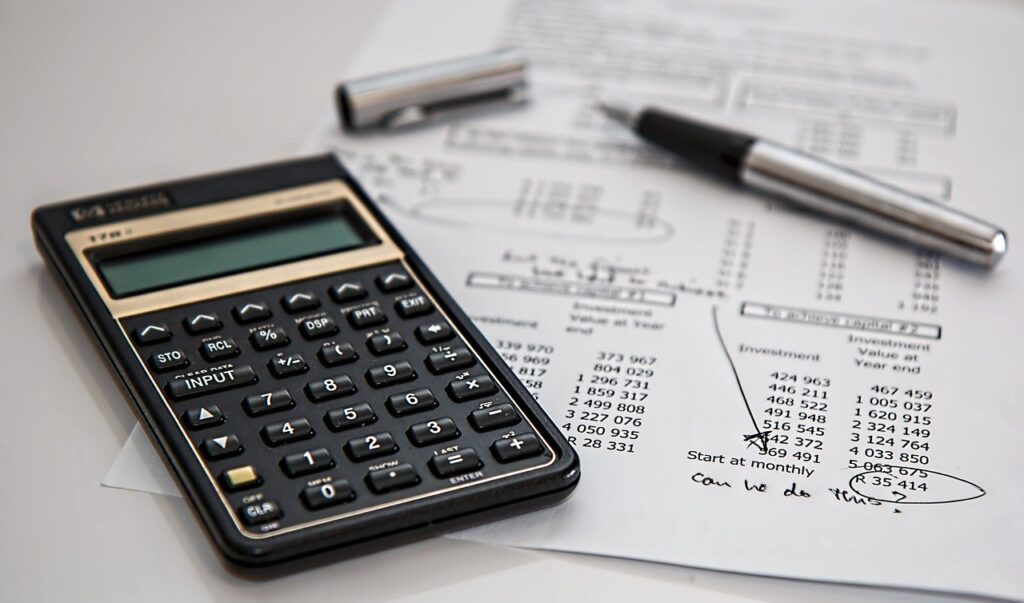Most people file bankruptcy for reasons outside their control, such as incurring major medical bills or going through an expensive divorce. However, many people could have avoided bankruptcy if they followed this advice from the office of a Philadelphia bankruptcy attorney.
1. Pay Off Your Credit Cards
These are simple steps, not easy steps. Most people misuse their credit cards and end up paying a lot more in interest than they should, or their balance balloons out of control, forcing them to default or file bankruptcy.
Credit cards are handy and if used wisely and sparingly help build your good credit. It is best practice to use your credit cards for certain regular expenses, such as gas or groceries, and then pay off your credit cards each month. That shows the credit bureaus and potential lenders that you that you know how to categorise expenses and are using your credit cards responsibly. It also boosts your credit score because your debt-to-income ratio is not unbalanced
by massive revolving credit card debt.
Let’s say you saw a watch that you absolutely must have, and not having that much cash on hand, paid for it with a credit card. The bill was $1100. You used the card that has the lowest interest rate – 14% – thinking that it would not take that long to pay off.
If you paid $100 per month, it would take you a year to pay off and you will have paid $84 in interest. You might think it was worth the $84 to have the watch immediately, and it might be, but $84 is 7% of the amount charged. It is like paying your state sales tax twice!
What if you couldn’t afford to pay $100 a month, but only the required minimum of $65? It would take you 19 months to pay off, and you will have paid $132 in interest. That’s more than two monthly payments.
Using your credit card for long-term loans is simply too expensive. Make a plan to pay off your credit cards right now. A popular way to pay down credit cards is to pay the minimum on all except one and pay the most you can on that one each month until you pay it off. Then select another card to pay off, and so on until they all have a $0 balance.
2. Create Emergency Savings
After you have paid off your credit cards, open a savings account and start an emergency savings fund with the money you have been using to pay off your credit cards. Your emergency savings will take the place of your credit cards, in that if a financial emergency does arise, you will have the funds to pay for it rather than put it on a credit card. Plus, your money will be earning interest until you need it. Wouldn’t you rather earn interest for yourself than pay interest to the credit card lenders?
Here’s an example: let’s say you had a significant, unexpected car repair to pay for, and you could not be without a car, so you had to use your credit card to pay for the repair and for a rental car for a week. The car repair came to $2300, and the rental car came to close to $700. If you put that same $100 a month toward that debt, it will take you 38 months – that’s three years, two months – to pay off, and you will have paid a whopping $713 in interest.
Let’s say you could not afford to pay $100, but only the minimum of $85 each month, and even that was a struggle. It would take you 46 months to pay off – just shy of four years – and you will have paid $888 in interest.
Four years of struggling, financially. Don’t put yourself through that. And, these scenarios apply only if you are lucky enough to have a credit card at 14% interest and a steady job. What if your interest rate is higher? What if your hours are cut at work, or you lose your job?
Now, let’s say you put $100 a month in savings instead of having to pay your credit card debt. At .8% compound interest, it will take you only 22 months to save $2,318.42, and you will have earned $118.42 in interest. That’s not much but it’s better than paying 14% interest to the credit card lender! More importantly, you have enough to fix your car, and you will only have to charge the rental car cost. By the way, you should get a cheaper rental car or borrow a car from a friend!
Wouldn’t you rather have your money working for you than slave away to pay the credit card lender’s exorbitant interest? Start your emergency savings fund as soon as your credit cards are paid off. You will soon find that you have peace of mind knowing you have the savings and the unused credit to handle any emergency.
3. Make a Budget and Stick to It
Sit down and list your monthly expenses. This list could include:
- Rent or mortgage
- Car payment
- Car maintenance and repair
- Fuel and tolls
- Renter’s or homeowner’s insurance
- Car insurance
- Life insurance
- Health insurance
- Medical co-pays
- Groceries
- Household goods
- Internet
- Cable
- Cell phone
- Utilities
- Personal care
- Travel
- Entertainment
- Pet supplies
- Vet bills
- Holiday gifts
- Tithing to a religious institution
- Student Loan
- Credit Card monthly payment(s)
Add all of these costs up. Does your income exceed this amount?
If it does not, chances are you have been misusing your credit cards to fund an unaffordable lifestyle. You need to either find a way to make more money or spend less money.
In our current gig economy, most people have a side hustle, like driving for Uber, tutoring or teaching a class online, or maintaining a blog. Consider which of your hobbies might be monetized.
If not willing or able to make more money, consider cutting back on expenses. Can you go out to dinner once a week rather than three times? Can you rent a movie and watch it at home rather than going to the movies? If you are an avid reader, get a device, and download books rather than purchase them. Turn the heat and AC down. Bundle your various insurances. Switch to a cheaper cell phone plan. Negotiate a lower interest rate with your credit card lenders. Consolidate your student loans.
Following these three simple, but not easy, steps will help you avoid bankruptcy and give you a sense of security and control over your finances and your future. Good luck!
About the Author
Veronica Baxter is a legal assistant and blogger living and working in the great city of Philadelphia. She frequently works with David Offen, Esq., a busy Philadelphia bankruptcy lawyer.

